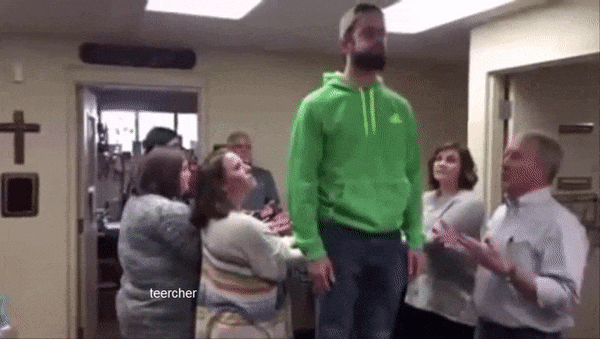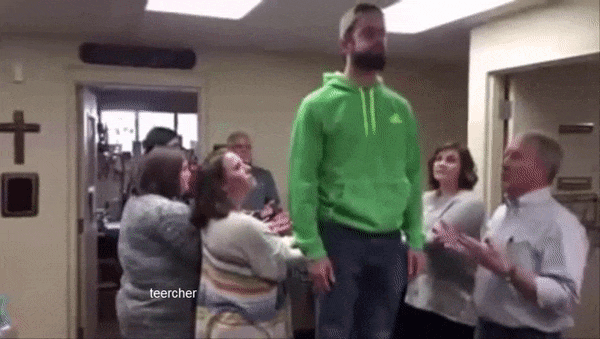
Community series: What trust means
This is the second post in our community series.
If you read my last community blog post, you probably expected this piece to be about asking good questions. But it’s not.
Instead, it’s about trust.
And that leads us to a very interesting question: Why did you expect something different?
Because I said that’s what I would write about, and you trusted me. Specifically, I ended with, “Which is why the next blog post in our series will cover asking questions in an efficient and effective manner.”

Why did you trust me, though? Most of you do not really know who I am, and even fewer will have met me. Yet, you extended the trust. Unpacking why this was the case, three somewhat orthogonal dimensions come into play:
Your confidence in me, personally
Your confidence in me on the topic
Your confidence in the surrounding context
This is then automatically judged against a fourth relevant factor: the level of protection you feel you need in this particular situation; i.e., the total amount of cumulative trust I need in order to pass the threshold that makes you think I am reliable enough to trust in this matter.
Nota bene: In general, you are likely to trust communication. If that wasn’t usually the case, society would not work. This is also called truth-default theory. As you continue reading, keep another thing in mind, too. If you’re reading this, that suggests the subject matter interests you and you’ll probably agree with it to some extent. In fact, people are far more likely to agree with statements or observations that they already perceive as true. It’s a psychological effect called confirmation bias.
Now, let me break down the trust dynamics in detail:
Personal trust: As I noted, you most likely do not know me, so you hold no particular trust or distrust in me – your feeling about me is probably neutral. Now, if you had seen that my title is “Director, Community,” that would likely suggest I’m not a completely horrible human being, so maybe I would get some of your trust simply from that, but that’s not completely personal trust.
Topical trust: My blog posts are, hopefully, somewhat well-structured and well-reasoned. I seem to know what I am talking about. And, if you saw my title, that also points towards me having some experience in the fields of communication and communities. So I would most likely gain some trust from that.
Contextual trust: This is the official blog by Grafana Labs. Not just anyone can publish on it, so you would probably assume what I write is legitimate and truthful. This blog post is part of a complete series planned (as far as you know ;)) on community topics, which are generally built on trust. Most, if not all, of the trust I derive from having my title actually stems from the fact that I work for Grafana Labs, and we’re going to assume that if you’re spending time on the blog, you like what the company represents. If I were at a company you despised and mistrusted, my title might actually make you wary of me. But let’s be honest, with this team, how could you?
Then there’s the needed level of protection: It makes sense that I would be talking about asking questions – that fits the topic of the community series and that’s what I said I would do. You might almost call the silent acceptance of that confirmation bias. And it’s not as if you really cared. If I am going to talk about this topic, fine. If it’s that other one, also fine. Your need for protection is near zero.
But there’s one more thing that makes a difference in all of this. You might call it the secret sauce of communication: Framing.
The sentences leading up to the end of my previous blog post were, “Of course, not all of this is feasible, or useful, in everyday communication. So: Assume good faith, and if in doubt: Ask.” And as silly as that sounds, it made you a little more trusting. You hopefully agreed with everything I’d written about online communication up to that point, so when I wrote “assume good faith,” you had that in your head when moving to the following line, which was the one about the topic of the next blog post in our series.
And while I quoted myself correctly just now, if I hadn’t done so, almost no one would have caught it.
Communities
So, why do I talk about trust at this great length? Simply because communities are built on trust. The fun of interacting with nice people; the shared purpose of shaping something; the familiar faces/nicknames you enjoy seeing; the knowledge that you can return and find things that are positive. All of this is based on trust.
If that communal trust went away, you would leave. So would others. The community would cease to exist.
And while I chose an obvious example on purpose, there are other forms of trust, which can also be thought of as the emotional security to let your shields down. If you trust, you don’t need to be on edge. You don’t need to second-guess every big or small thing.
Building trust
Many things can help build trust, and we will touch on a lot of them in future blog posts. But if I had to point out the one thing that most commonly builds trust, I would say it’s reliability. If you say or imply you will or won’t do something, make sure you follow through. And if you can’t, be honest about it with people: Explain why you didn’t do what you’d intended and what you will do to try to prevent it from happening again; share how you plan to make up for it; or be honest about why it cannot happen at all. When plans need to change, it’s better to tell people instead of having the news come as a fun surprise.
Being reliable is the simplest way to build long-term trust. And it goes both ways: You want to know how the community will react in certain regards. You want to plan and anticipate what is going to happen within the community, and the other community members expect the same from you. This allows you to avoid a mental overhead of shielding and contingency planning in case the other party does not deliver. It allows everyone to trust each other.
In short: Say you’ll do something, do it, tell the person/people that you did it. Repeat.
Burning trust
I have a saying: “The only thing easier to burn than money is trust.” You don’t need to look far to find someone willing to take your money off of you, but it’s even easier to get rid of trust put in you – and sometimes it’s by mistake. Think about it this way: If you lost your basic trust in someone, would you still interact willingly? Would you still help them? Confide in them?
And how often did you think something was important and grave which others just didn’t seem to be able to grasp? It’s exactly the other way round as well; people might feel something is important or urgent and you don’t see it. If they don’t have reason to assume good faith, they will lose even more trust in you.
Regaining trust
If you lose trust, it will happen quickly and can become permanent all too easily. Everyone starts out with some baseline of trust. When trust is lost, it takes more time to rebuild it and it will take more effort than gaining it the first time.
Once again, communication is the only thing that helps improve the situation: Be open about what happened, try to understand if there were any misunderstandings, and try to work it out together. And sometimes, you just have to accept that it’s too late, or too early, and move on.
Ending on such a negative note, the framing of this blog post is markedly different from my first one. This framing might make it much less likely that you will trust me when I tell you that next time, I will be talking about asking good questions.
On the other hand, I was open and honest about it and explained the “misunderstanding,” so I am probably telling the truth.
Or am I?
Good question…
